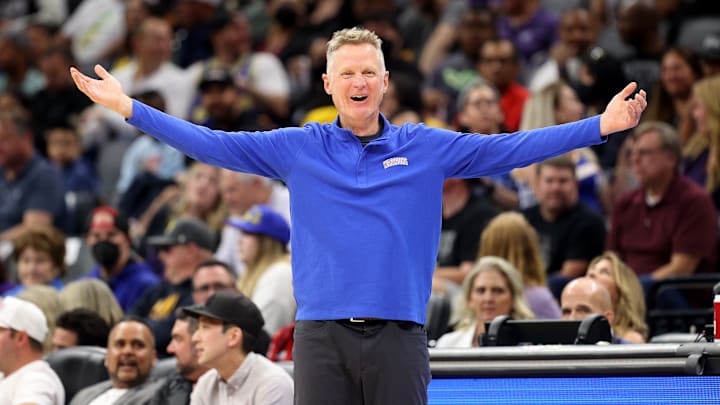As the Golden State Warriors have attempted to bring an end to their lingering Jonathan Kuminga situation this offseason, the two parties have seemingly not come any closer to any agreement as a result of the young forward's hesitancy towards accepting a deal that includes a team option.
Moreover, even though it was recently reported by ESPN that the Warriors have upped their offer to something in the three-year, $75 million range, Kuminga still remains hesitant to give up that leverage, and, by negotiating with Kuminga purely as a trade piece, the organization might be hurting their chances with future free agents.
While Kuminga's situation, and his clear desire to have a role different than what he has in Golden State, are unique, the organization's stubborn insistence on making his new contract a walking tradeable piece could shed even more negative light on them than his whole situation already has.
Warriors' insistence on a team option for Kuminga makes their priorities crystal clear
As the offseason began, Kuminga, along with other restricted free agents such as Josh Giddey, were intially expecting deals somewhere in the $30 million range of annual value. Yet, as the landscape around restricted free agency became more and more clear, it became apparent that the potential value for Kuminga's contract, at least for the time being, rested more in the $20-25 million range.
Therefore, when the Warriors came forward with a two-year, $45 million offer, it seemed like a relatively fair proposal. Kuminga would get a moderate pay day now, and the deal would allow him to be traded with ease to a team that could give him to opportunity he has so publicly desired in his time with Golden State.
Yet, according to Anthony Slater of ESPN, it has always been the organization's insistence upon the inclusion of a team option in the deal that has held up negotiations: "Their unwillingness to budge on the team option in those specific two offers is a major part of the holdup. Kuminga, gripping to the first lever of control he has had in his young career, is resistant to the idea of it..."
To Kuminga, Golden State's desire to maintain a team option signals a complete lack of faith in his ability to fit in with the team's structure. Although he might ultimately want to be traded, this has to feel like an insult from an organization that has all but sidelined him throughout his short career.
It is certain that there are many, many eyes around the league watching how this Kuminga situation unfolds, and negotiating in such bad faith on the Warriors' part does not reflect kindly upon their handling of potential future negotations..
Therefore, it is very possible that their handling of this situation, and the way in which they have used their leverage against Kuminga, could affect not only the perception of their front office around the league but also their negotiations with free agents as they attempt to rebuild post-Stephen Curry era.
